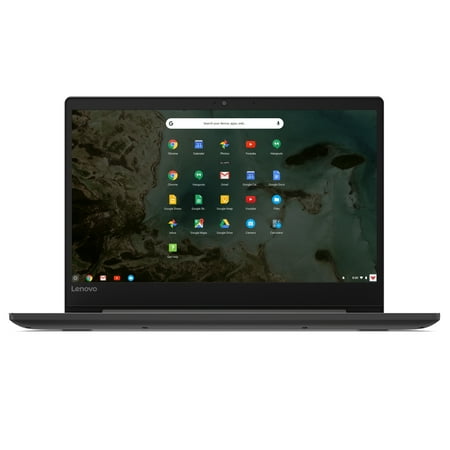Logitech – MK570 Ergonomic Wireless Optical Comfort Wave Keyboard and Mouse – Black
Stay comfortable all day long with this Logitech wireless keyboard and mouse set. The keyboard is ergonomically designed so that you can rest your wrists and reduce the effects of RSI, and both the keyboard and mouse connect using the same USB port. Effortless functionality is at your fingertips with this Logitech wireless keyboard and mouse set.
Additional information
| Model Number | 920-008001 |
|---|---|
| Product Height | 1.18 inches |
| Product Width | 16.5 inches |
| Product Weight | 26.98 ounces |
Black is a color that results from the absence or complete absorption of visible light. It is an achromatic color, without hue, like white and grey. It is often used symbolically or figuratively to represent darkness. Black and white have often been used to describe opposites such as good and evil, the Dark Ages versus Age of Enlightenment, and night versus day. Since the Middle Ages, black has been the symbolic color of solemnity and authority, and for this reason it is still commonly worn by judges and magistrates.
Black was one of the first colors used by artists in Neolithic cave paintings. It was used in ancient Egypt and Greece as the color of the underworld. In the Roman Empire, it became the color of mourning, and over the centuries it was frequently associated with death, evil, witches, and magic. In the 14th century, it was worn by royalty, clergy, judges, and government officials in much of Europe. It became the color worn by English romantic poets, businessmen and statesmen in the 19th century, and a high fashion color in the 20th century. According to surveys in Europe and North America, it is the color most commonly associated with mourning, the end, secrets, magic, force, violence, fear, evil, and elegance.
Black is the most common ink color used for printing books, newspapers and documents, as it provides the highest contrast with white paper and thus is the easiest color to read. Similarly, black text on a white screen is the most common format used on computer screens. As of September 2019, the darkest material is made by MIT engineers from vertically aligned carbon nanotubes.
Comfort (or being comfortable) is a sense of physical or psychological ease, often characterised as a lack of hardship. Persons who are lacking in comfort are uncomfortable, or experiencing discomfort. A degree of psychological comfort can be achieved by recreating experiences that are associated with pleasant memories, such as engaging in familiar activities, maintaining the presence of familiar objects, and consumption of comfort foods. Comfort is a particular concern in health care, as providing comfort to the sick and injured is one goal of healthcare, and can facilitate recovery. Persons who are surrounded with things that provide psychological comfort may be described as being "in their comfort zone". Because of the personal nature of positive associations, psychological comfort is highly subjective.
The use of "comfort" as a verb generally implies that the subject is in a state of pain, suffering or affliction, and requires alleviation from that state. Where the term is used to describe the support given to someone who has experienced a tragedy, the word is synonymous with consolation or solace. However, comfort is used much more broadly, as one can provide physical comfort to someone who is not in a position to be uncomfortable. For example, a person might sit in a chair without discomfort, but still find the addition of a pillow to the chair to increase their feeling of comfort. Something that provides this type of comfort, which does not seek to relieve hardship, can also be referred to as being "comfy".
Logitech International S.A. ( LOJ-i-tek; stylized in all lowercase) is a Swiss multinational manufacturer of computer peripherals and software. Headquartered in Lausanne, Switzerland, and San Jose, California, the company has offices throughout Europe, Asia, Oceania, and the Americas, and is one of the world's leading manufacturers of input and interface devices for personal computers (PCs) and other digital products. It is a component of the flagship Swiss Market Index, and listed on the Nasdaq.
The company develops and markets personal peripherals for PC navigation, video communication and collaboration, music and smart homes. This includes products like keyboards, mice, tablet accessories, headphones and headsets, webcams, Bluetooth speakers, universal remotes and more. Its name is derived from logiciel (the French word for software) and 'tech'.
A mouse (pl.: mice) is a small rodent. Characteristically, mice are known to have a pointed snout, small rounded ears, a body-length scaly tail, and a high breeding rate. The best known mouse species is the common house mouse (Mus musculus). Mice are also popular as pets. In some places, certain kinds of field mice are locally common. They are known to invade homes for food and shelter.
Mice are typically distinguished from rats by their size. Generally, when a muroid rodent is discovered, its common name includes the term mouse if it is smaller, or rat if it is larger. The common terms rat and mouse are not taxonomically specific. Typical mice are classified in the genus Mus, but the term mouse is not confined to members of Mus and can also apply to species from other genera such as the deer mouse (Peromyscus).
Domestic mice sold as pets often differ substantially in size from the common house mouse. This is attributable to breeding and different conditions in the wild. The best-known strain of mouse is the white lab mouse. It has more uniform traits that are appropriate to its use in research.
Cats, wild dogs, foxes, birds of prey, snakes and certain kinds of arthropods have been known to prey upon mice. Despite this, mice populations remain plentiful. Due to its remarkable adaptability to almost any environment, the mouse is one of the most successful mammalian genera living on Earth today.
In certain contexts, mice can be considered vermin. Vermin are a major source of crop damage, as they are known to cause structural damage and spread disease. Mice spread disease through their feces and are often carriers of parasites. In North America, breathing dust that has come in contact with mouse excrement has been linked to hantavirus, which may lead to hantavirus pulmonary syndrome (HPS).
Primarily nocturnal animals, mice compensate for their poor eyesight with a keen sense of hearing. They depend on their sense of smell to locate food and avoid predators.
In the wild, mice are known to build intricate burrows. These burrows have long entrances and are equipped with escape tunnels. In at least one species, the architectural design of a burrow is a genetic trait.
In physics, mathematics, engineering, and related fields, a wave is a propagating dynamic disturbance (change from equilibrium) of one or more quantities. Periodic waves oscillate repeatedly about an equilibrium (resting) value at some frequency. When the entire waveform moves in one direction, it is said to be a travelling wave; by contrast, a pair of superimposed periodic waves traveling in opposite directions makes a standing wave. In a standing wave, the amplitude of vibration has nulls at some positions where the wave amplitude appears smaller or even zero.
There are two types of waves that are most commonly studied in classical physics: mechanical waves and electromagnetic waves. In a mechanical wave, stress and strain fields oscillate about a mechanical equilibrium. A mechanical wave is a local deformation (strain) in some physical medium that propagates from particle to particle by creating local stresses that cause strain in neighboring particles too. For example, sound waves are variations of the local pressure and particle motion that propagate through the medium. Other examples of mechanical waves are seismic waves, gravity waves, surface waves and string vibrations. In an electromagnetic wave (such as light), coupling between the electric and magnetic fields sustains propagation of waves involving these fields according to Maxwell's equations. Electromagnetic waves can travel through a vacuum and through some dielectric media (at wavelengths where they are considered transparent). Electromagnetic waves, as determined by their frequencies (or wavelengths), have more specific designations including radio waves, infrared radiation, terahertz waves, visible light, ultraviolet radiation, X-rays and gamma rays.
Other types of waves include gravitational waves, which are disturbances in spacetime that propagate according to general relativity; heat diffusion waves; plasma waves that combine mechanical deformations and electromagnetic fields; reaction–diffusion waves, such as in the Belousov–Zhabotinsky reaction; and many more. Mechanical and electromagnetic waves transfer energy, momentum, and information, but they do not transfer particles in the medium. In mathematics and electronics waves are studied as signals. On the other hand, some waves have envelopes which do not move at all such as standing waves (which are fundamental to music) and hydraulic jumps.
A physical wave field is almost always confined to some finite region of space, called its domain. For example, the seismic waves generated by earthquakes are significant only in the interior and surface of the planet, so they can be ignored outside it. However, waves with infinite domain, that extend over the whole space, are commonly studied in mathematics, and are very valuable tools for understanding physical waves in finite domains.
A plane wave is an important mathematical idealization where the disturbance is identical along any (infinite) plane normal to a specific direction of travel. Mathematically, the simplest wave is a sinusoidal plane wave in which at any point the field experiences simple harmonic motion at one frequency. In linear media, complicated waves can generally be decomposed as the sum of many sinusoidal plane waves having different directions of propagation and/or different frequencies. A plane wave is classified as a transverse wave if the field disturbance at each point is described by a vector perpendicular to the direction of propagation (also the direction of energy transfer); or longitudinal wave if those vectors are aligned with the propagation direction. Mechanical waves include both transverse and longitudinal waves; on the other hand electromagnetic plane waves are strictly transverse while sound waves in fluids (such as air) can only be longitudinal. That physical direction of an oscillating field relative to the propagation direction is also referred to as the wave's polarization, which can be an important attribute.
Wireless communication (or just wireless, when the context allows) is the transfer of information (telecommunication) between two or more points without the use of an electrical conductor, optical fiber or other continuous guided medium for the transfer. The most common wireless technologies use radio waves. With radio waves, intended distances can be short, such as a few meters for Bluetooth, or as far as millions of kilometers for deep-space radio communications. It encompasses various types of fixed, mobile, and portable applications, including two-way radios, cellular telephones, personal digital assistants (PDAs), and wireless networking. Other examples of applications of radio wireless technology include GPS units, garage door openers, wireless computer mouse, keyboards and headsets, headphones, radio receivers, satellite television, broadcast television and cordless telephones. Somewhat less common methods of achieving wireless communications involve other electromagnetic phenomena, such as light and magnetic or electric fields, or the use of sound.
The term wireless has been used twice in communications history, with slightly different meanings. It was initially used from about 1890 for the first radio transmitting and receiving technology, as in wireless telegraphy, until the new word radio replaced it around 1920. Radio sets in the UK and the English-speaking world that were not portable continued to be referred to as wireless sets into the 1960s. The term wireless was revived in the 1980s and 1990s mainly to distinguish digital devices that communicate without wires, such as the examples listed in the previous paragraph, from those that require wires or cables. This became its primary usage in the 2000s, due to the advent of technologies such as mobile broadband, Wi-Fi, and Bluetooth.
Wireless operations permit services, such as mobile and interplanetary communications, that are impossible or impractical to implement with the use of wires. The term is commonly used in the telecommunications industry to refer to telecommunications systems (e.g. radio transmitters and receivers, remote controls, etc.) that use some form of energy (e.g. radio waves and acoustic energy) to transfer information without the use of wires. Information is transferred in this manner over both short and long distances.






by Mike
good combo , hard to clean, works fine under windows 10.
by Mark
My wife loves this key board, she works from home doing insurance and hates using the one in the office now haha. We have had it since 2020 and it’s still going strong no issues!
by Jay
This keyboard is great. Easy to use and type. Especially for beginners that’s learning to type professionally.
by Lacy
I am very pleased with my new Logitech Wireless Keyboard and Mouse. It has several features that my previous wireless keyboard lacked.
by Gary
I have this system on two other desktops. The only minor complaint I have is that the mouse isn’t recognized by the Keyboard software causing use of 2 different systems. The hot key and multi screen button are my favorites.
by Furies
I’ve had this combo for over a year and a half now and I don’t have any complaints. Battery life seems great! I’ve had to replace the mouse batteries twice but not the keyboard yet and I use everyday.